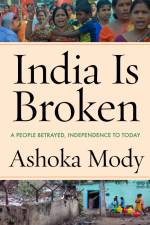av Viola Alianov-Rautenberg
737
"For the sixty thousand German Jews who escaped Nazi Germany and found refuge in Mandate Palestine between 1933 and 1941, migration meant radical changes: it transformed their professional and cultural lives and confronted them with a new language, climate, and society. Bridging German-Jewish and Israeli history, this book tells the story of German-Jewish migration to Mandate Palestine/Eretz Israel as gender history. It argues that this migration was shaped and structured by gendered policies and ideologies and experienced by men and women in a gendered form - from the decision to immigrate and the anticipation of change, through the outcomes for family life, body, self-image, and sexuality. Immigration led to immediate transformations in allocations of tasks within the family, concepts of masculinity and femininity, and participation in the labor market and domestic life. Through a close examination of archival materials in German, English, and Hebrew, including administrative records, personal documents, newspapers, and oral history interviews conducted by the author, this book follows Jewish migrants along their journeys from Germany and into the workplaces, living rooms, and kitchens of their new homeland, providing a new perspective on everyday life in Mandate Palestine. Viola Alianov-Rautenberg's work illuminates key issues at the intersection of migration studies, German-Jewish studies, and Israeli history, demonstrating how the lens of gender enriches our understanding of social change, power, ethnicity, and nation-building"--






























